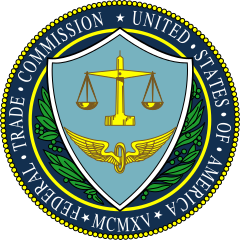Two tools you can use to make identity theft less likely have just become available for free today (Friday), Sept. 21, thanks to a new federal law: credit freezes and year-long fraud alerts.
Here’s what you should know:
Security freezes, also known as credit freezes, restrict access to your credit file, making it harder for identity thieves to open new accounts in your name.
Starting today, you can freeze and unfreeze your credit file for free. You also can get a free freeze for your children who are under 16. And if you are someone’s guardian, conservator or have a valid power of attorney, you can get a free freeze for that person, too.
How Will These Freezes Work?
Contact all three of the nationwide credit reporting agencies — Equifax, Experian, and TransUnion. If you request a freeze online or by phone, the agency must place the freeze within one business day.
— This article is from the Consumer Information blog at the Federal Trade Commission. Darienite has added a sidebar below with more information from news accounts.
If you request a lift of the freeze, the agency must lift it within one hour.
If you make your request by mail, the agency must place or lift the freeze within three business days after it gets your request.
You also can lift the freeze temporarily without a fee.
Don’t confuse freezes with locks. They work in a similar way, but locks may have monthly fees. If you want a free freeze guaranteed by federal law, then opt for a freeze, not a lock.
Year-Long Fraud Alerts
A fraud alert tells businesses that check your credit that they should check with you before opening a new account.
Starting Sept. 21, 2018, when you place a fraud alert, it will last one year, instead of 90 days.
Fraud alerts will still be free and identity theft victims can still get an extended fraud alert for seven years.
Credit Freezes and the Military
If you’re in the military, you’ll still have access to active duty alerts, which let you place a fraud alert for one year, renewable for the time you’re deployed.
The active duty alert also gives you an added benefit: the credit reporting agencies will take your name off their marketing lists for prescreened credit card offers for two years (unless you ask them to add you back on).
You can place a fraud alert or active duty alert by visiting any one of the three nationwide credit reporting agencies – Equifax, Experian or TransUnion.
The one that you contact must notify the other two. You also can find links to their websites at IdentityTheft.gov/CreditBureauContacts.
Problems With a Credit Freeze
If you think a credit reporting agency is not placing a credit freeze or fraud alert properly, you can submit a complaint online or by calling 855-411-2372. If you think someone stole your identity, visit the FTC’s website, IdentityTheft.gov, to get a personalized recovery plan that walks you through the steps to take.
For more information, check out Place a Fraud Alert, Extended Fraud Alerts and Credit Freezes, and Credit Freeze FAQs. And if you’re considering a child credit freeze, you also may want to read Child Identity Theft.
Credit Bureau Contacts
Contact the national credit bureaus to request fraud alerts, credit freezes (also known as security freezes), and opt outs from pre‑screened credit offers.
Equifax
Equifax.com/personal/credit-report-services
800-685-1111Experian
Experian.com/help
888-EXPERIAN (888-397-3742)Transunion
TransUnion.com/credit-help
888-909-8872
___________________
Andrew Smith is director of the Bureau of Consumer Protection at the Federal Trade Commission.Gail Hillebrand, is associate director of the Bureau of Consumer Financial Protection, Division of Consumer Education and Engagement.
___________________
SIDEBAR:
What News Reports Are Saying
Some news reports about the new federal rule on credit freezes have made these points:
- This was the most in-depth article we found for background on the subject and the wider subject of identity theft. Three points: (1) Consider the hassle of taking out a credit freeze, then applying for a mortgage, car loan or student loan shortly afterward, then reversing the credit freeze with all three credit bureaus, then later freezing. (2) “Even if not affected by a data breach, people should consider placing a credit freeze with each of the three credit bureaus after Sept. 21, as it substantially limits potential abuse of one’s credit report, Schaub said. […] (3) Some entities, such as insurers and employers, are exempted under the new federal law.” Virginian-Pilot, republished from the Detroit Free Press (Sept. 10)
- “Once the freeze is in place, you have to ‘thaw’ it—either temporarily or permanently—if you apply for credit or a loan so the bank can check your credit. This is free now, as well.” After Equifax revealed that 148 million consumers records were breached in a cyberattack, federal legislation was signed into law last May to make credit freezes free.—CNBC (Sept. 20)
- “[A] credit freeze doesn’t stop all types of identity theft. For instance, the most common form of ID theft is when someone simply steals your credit card or credit card number and uses it to charge items on your account. Credit freezes have no effect on this. In addition, it doesn’t stop a crook from using your Social Security number to perpetrate tax fraud, as became a problem earlier this year.” — CBS (Sept. 21)
- “If you haven’t frozen your account yet, you should still do it, experts say. It’s possible that the fraudsters who initially had the Equifax data have re-sold it to other criminals.” — MarketWatch (Sept. 20)
- “Credit freezes may take longer to lift (or “thaw”) than credit locks. While credit freezes can be lifted quickly in some cases, certain states’ laws allow credit bureaus up to three business days to lift a credit freeze.” [It is unclear whether or not the new federal law changes any of this. This article also mentions other things you can do to prevent identity theft.] — Credit Karma (Sept. 11)


